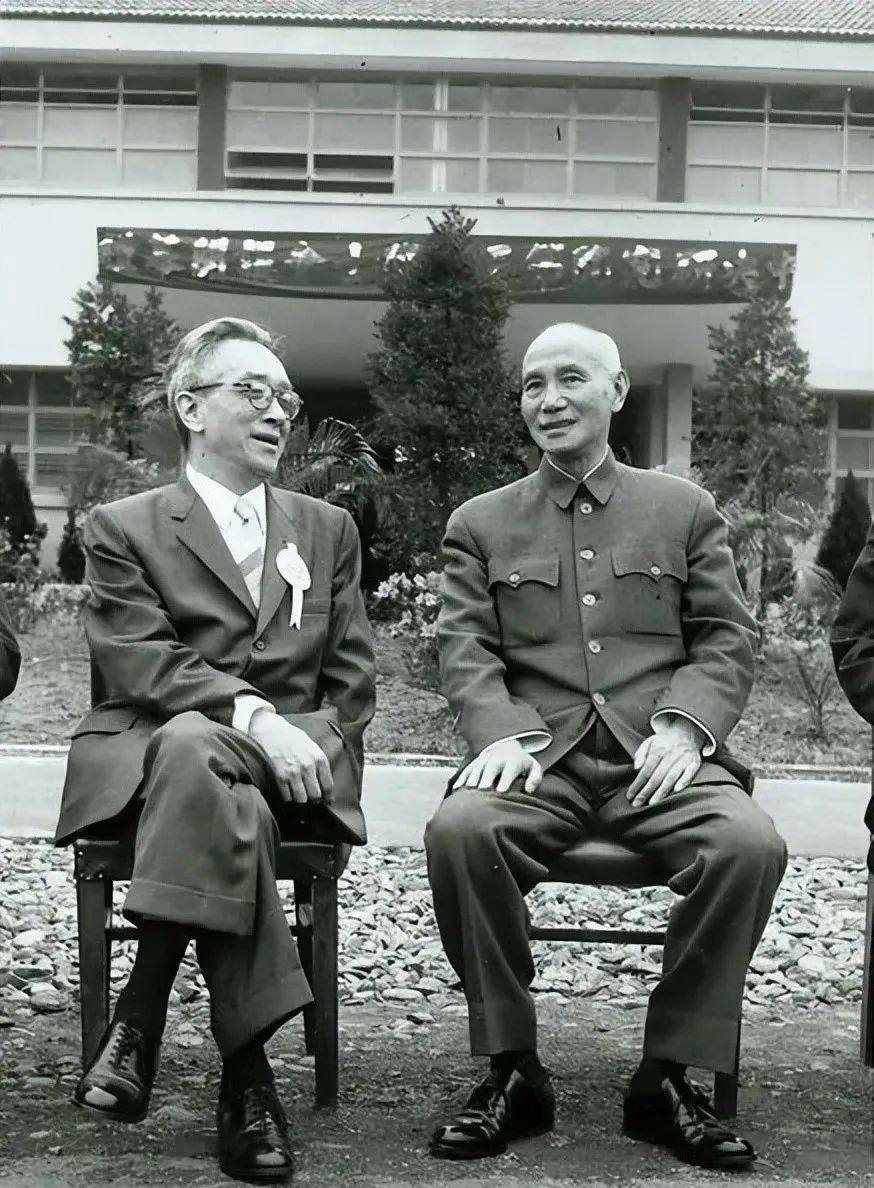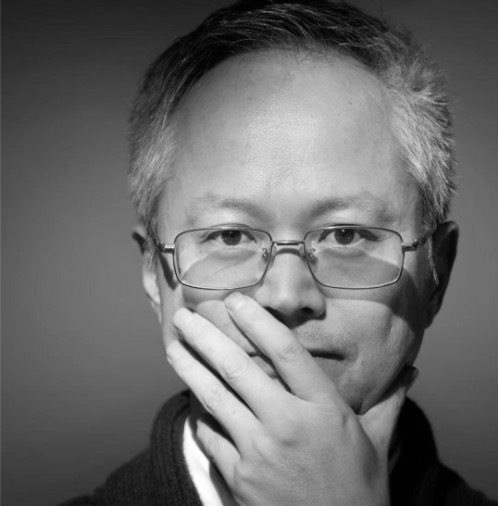国人、野人、都人、鄙人,是古代社会结构的称呼,今天仍然在文明世界里泾渭分明地存在。城乡结合部的城里人跟村里人会打交道,但他们几乎没有正眼看过后者。乡村似乎是一个沉默地带,城里灯火通明,乡村里暗淡无光。在世界范围内,同一族群的国家创造力层出不穷,对面的兄弟国家则是沉默的国民。
国、野、都、鄙,古之社会之称也,今犹存于文明之世,界若泾渭。城郊之居者与乡野之民相交,然鲜有正目视后者。乡野似为寂默之域,城中灯火璀璨,乡间黯然无光。寰宇之内,同族之邦才思勃发,而邻国兄弟则民性缄默。“Guoren,” “Yeren,” “Duren,” and “Biren” were terms for social strata in ancient times, yet they still exist distinctly in the civilized world today. Urban dwellers in suburban areas interact with villagers, but they rarely give them a proper glance. The countryside seems like a silent zone, while the city gleams with bright lights; the rural areas remain dim and desolate. Across the globe, nations of the same ethnic group are teeming with creativity, whereas their neighboring brother nations are populated by silent citizens.
因为国涌兄去世,有人想到了心血管疾病,还说这个病的一个表现就是爱翘二郎腿。我立马想到了胡适跟蒋先生一起的照片,他翘二郎腿的样子跟文化人多么提气,但没想到还有一个生理病变的问题。我自己爱翘二郎腿,因为劝人不要翘,有人反驳说,翘二郎腿才有风骨和快感。

国涌兄过世,或念及心血管之疾,且言此病一症乃喜跷二郎腿。吾闻之,即忆胡适与蒋公合影,其跷腿之姿,何其文雅,然未料尚有生理病变之虑。吾素喜跷腿,每劝人勿跷,辄有反诘曰:跷二郎腿,方显风骨,亦得快意。Upon the passing of Brother Guoyong, some thought of cardiovascular disease, even suggesting that one of its manifestations is the habit of crossing one’s legs. I immediately recalled a photograph of Hu Shih with Mr. Jiang, his posture of crossing his legs exuded such scholarly vitality. Yet, I never imagined there was also a physiological problem involved. I myself enjoy crossing my legs, and when I advise others not to, some retort that only by crossing one’s legs can one display character and derive pleasure.
我熟悉一个村庄,经过时司机多会优越地说这个村庄的可笑之处,感觉村民就那样世世代代自生自灭地过活了。有一天突然遇到一个年轻人做艺术设计,已经登堂入室,自成一家。我惊讶地问他是哪里的,他说是那个村里的人,小时喜欢,经历了很多磨难,才能让兴趣成为事业。我听他说的时候想到的却是古人的话,十步之内,必有芳草。
吾熟识一村落,途经时,御者多傲然言其可笑,觉村民世代如是,自生自灭耳。一日,偶遇一少年,擅艺术设计,已臻化境,自成一家。吾惊而问其籍贯,对曰:乃彼村人也。少时好之,历尽艰辛,终使所好成其业。吾闻之,乃思古人语:“十步之内,必有芳草。”I am familiar with a village. When passing by, drivers often speak condescendingly about its absurdities, as if the villagers have been living generation after generation, left to their own devices, thriving or perishing on their own. One day, I suddenly met a young man engaged in artistic design, who had already reached a high level of mastery, establishing his own unique style. I was surprised and asked where he was from, and he replied that he was from that village. He said he had loved it since childhood and had gone through many hardships before being able to turn his passion into a career. While listening to him, what came to my mind was an ancient saying: “Within every ten steps, there must be fragrant grass.”
孩子是父母的爱,这个话可以解释很多。一个朋友说,他们夫妻要了老大之后本来没打算再要,因为两人的事业都很关键。他母亲有一次在客厅里看着孙子出门玩儿,不经意地对他说,你看,现在在沙发上放一捆50万元现金,再放一个宝宝,你会选哪一个?他一下子明白自己该要什么了。
子女乃父母之爱,此言可解诸多事也。一友言,其夫妇育长子女后,本不欲再添,盖二人事业皆关要。其母尝于厅中见孙儿出门嬉戏,偶语之曰:“观之,今于榻上置五十万金,又置一婴,汝择何者?”其人顿悟所当求者为何。Children are the love of their parents; this saying can explain many things. A friend mentioned that after having their first child, he and his wife initially didn’t plan to have another, as both of their careers were crucial. One time, his mother watched their grandson playing outside from the living room and casually asked him, “Look, if you were to put a bundle of 500,000 yuan in cash on the sofa and also place a baby there, which would you choose?” He instantly understood what he should prioritize.彭老师说,原以为芸芸众生逃不过生活的磨砺,实属正常,名校毕业高过凡夫俗子一头,尤其以书笔为伴的,境遇总要平坦些吧,结果发现自己还是浅陋了。业力面前,还真是众生平等。彭老师认为,审视磨难,落定之苦,即如事业破产、亲人离世亦痛不过数日。其最让人不能忍的还是心之不安,能让生命破维而出的唯一契机也是这个“不安”,一旦靴子落地,要么懊悔不已、要么弹冠相庆,又复归芸芸矣。我们应该以“不安”善护念、善咐嘱,“有人安于物得,有人安于信仰,有人安于真理,有人安于自在,有人安于不安。”
彭师云:原以为众生难逃生计磨砺,乃常理也。名校之卒,较凡夫俗子高出一筹,尤以笔墨为伴者,其境或当平顺。然则自省,仍觉浅陋。业力当前,众生果真平等。彭师以为,审察困厄,沉沦之苦,纵如事业倾颓、亲者离世,痛亦不过数日。其最难忍者,实乃心之不宁。能使生命破茧而出之唯一机缘,亦为此“不宁”。一旦尘埃落定,或懊悔难当,或欢欣若狂,终复归于众生矣。吾辈当以“不宁”善护心念、善加嘱托。“有人安于物得,有人安于信仰,有人安于真理,有人安于自在,有人安于不宁。”Teacher Peng said, “I originally thought that the multitude couldn’t escape the grind of life, which was quite normal. Graduates from prestigious universities stand a notch above ordinary folks, especially those who spend their time with books and pens; their paths should naturally be smoother. But I found myself mistaken again. In the face of karma, all beings are truly equal.” Teacher Peng believes that when examining hardships and the suffering of falling into misfortune, even the collapse of a career or the loss of a loved one brings pain that lasts only a few days. What is most unbearable is the unease of the heart. This very “unease” is also the sole opportunity for life to break through its limitations. Once the moment arrives, one either regrets deeply or celebrates wildly, only to return to the multitude once more. We should use this “unease” to carefully protect our thoughts and give good counsel. “Some find peace in material gains, some in faith, some in truth, some in freedom, and some even in unease.”东西方的差异是一个老话题,参与其中的人喜欢争论优劣,今天我们明白是两套操作系统。我们问对方贵姓,西方人问对方名字,让人以为我们重集体,他们重个人。敲门问时,我们单刀直入地问,谁呀?对方答,我。西方人问,那人是谁?对方答,那是某某。有人觉得西方人的方式好笑,但把自己当做客体也是一个非常有意义的思维方式。
东西之异,旧题也。论者喜争优劣,今乃知乃两套操作系统。吾辈问人,必曰“贵姓”,西人则问其名,人以为吾重集体,彼重个人。叩门问时,吾辈径直问曰:“谁耶?”对曰:“我。”西人问曰:“彼何人?”对曰:“彼某某也。”有人笑西人之法为谬,然以己为客,亦大有深意之思也。People involved like to argue about which is better or worse. Today, we understand that they are two sets of operating systems.We ask others "What's your surname?", while Westerners ask "What's your name?" This makes people think that we value the collective, and they value the individual. When knocking on a door, we ask directly, “Who ?”The response is, “me.” Westerners ask, “Who is it?”The response is, “its [Name].” Some find the Western way amusing, but thinking of oneself as an object is also a very meaningful way of thinking.本文为正观号作者或机构在正观新闻上传并发布,仅代表该作者或机构观点,不代表正观新闻的观点和立场,正观新闻仅提供信息发布平台。

还没有评论,快来抢沙发吧!




 iPhone版
iPhone版  Android版
Android版 


